Whether it’s a countryside farmhouse or a family home in the suburbs, it’s a lifelong dream for many to build their own house. In fact, research suggests that 1 in 3 people are interested in self-building, with many people re-evaluating their living situation following the COVID-19 pandemic. While interest in self-building may be high, many never act on their dreams due to the financial strain of building their own property. So, in this article, we’ll be using our expertise to answer the question: how much does it cost to build a house?
Self-Build Guide: How Much Does It Cost To Build A House?
If you’re considering building your own home, there are plenty of things you’ll need to figure out before construction begins. From understanding the cost of land to creating your own budget, it can all seem daunting at first. That’s why we’ve answered some key questions below to help you make your self-build goals a reality. Once you’re ready to move forward with your project, get in touch with our team at Amico for market-leading architectural design in Milton Keynes.
- Where To Start?
- How Much Does Land Cost?
- What Should You Factor Into A Self-Build Budget?
- How Does Project Management Impact Build Costs?
- How Does An Architect Impact Build Costs?
- Who Can Help Me Develop A Budget?
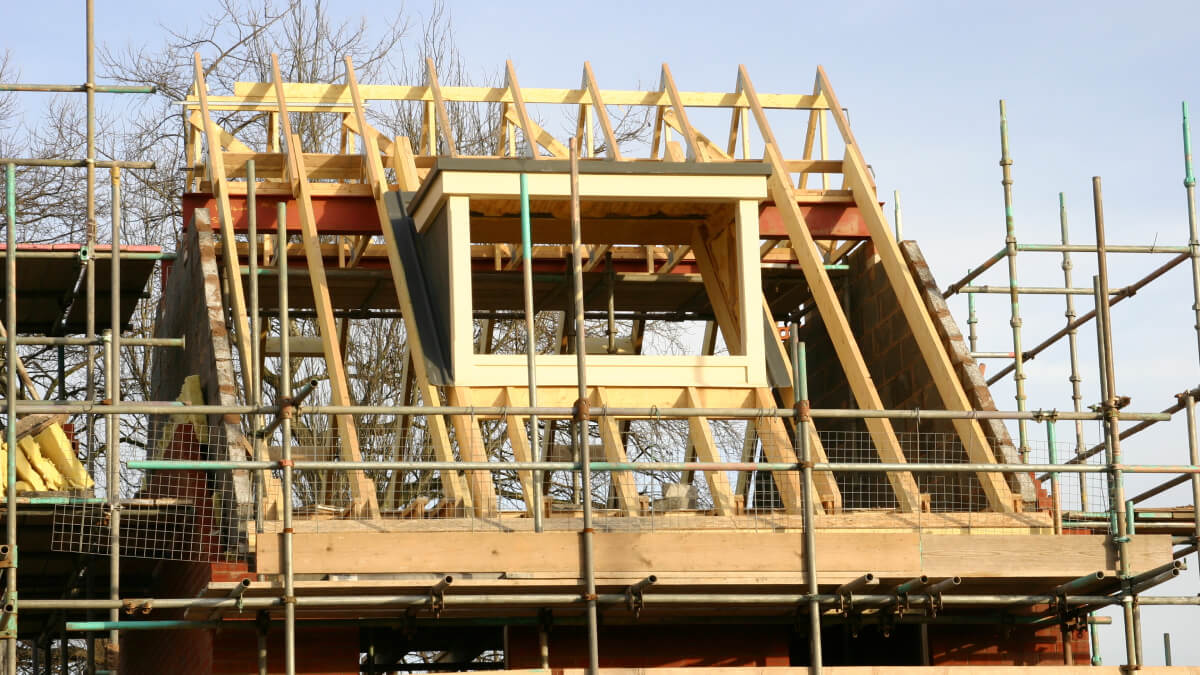
Where To Start?
The first step in any self-build project is to develop an intricate understanding of your finances to establish exactly how much money you’ve got at your disposal. Start by looking at your savings, including any equity you have in existing property, and decide how much you want to dedicate to this project.
Additionally, check out how much money you can bring in with a self-build mortgage. As the name suggests, a self-build mortgage is a loan you can take out to fund a property you are building yourself. It differs from a standard mortgage in that you receive the funds in stages as parts of the build are finished rather than a single lump sum. This reduces the lender’s risk and ensures the money is spent as planned.
With these figures, you’ll be able to come up with a rough construction budget for your self-build. This budget won’t be accurate enough to suffice for the entire project, but it will reveal whether building your own home is realistic with the finances available.
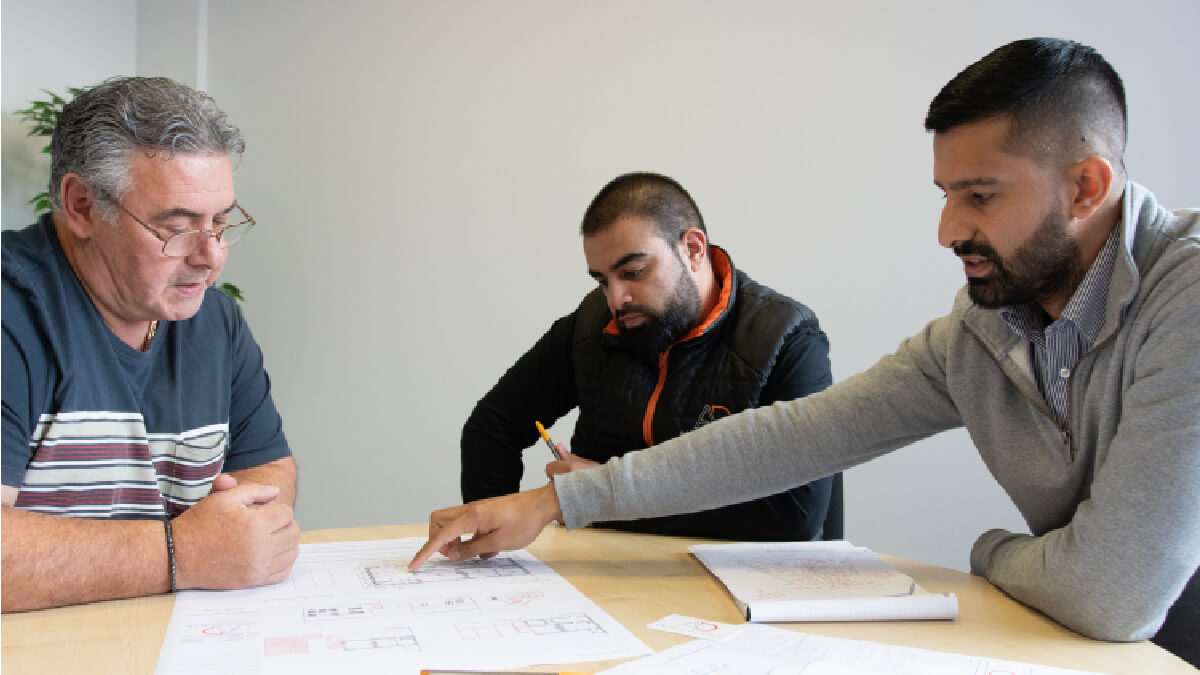
How Much Does Land Cost?
Many self-builders often overlook the cost of land and are forced to reconsider their plans once they add it to their budget. Just like house prices, land costs vary depending on location. As a rough guide, the National Custom & Self Build Association (NaCSBA) ‘s most recent market survey suggests that most building plots cost £100,000-£299,000. To better understand what a plot in your ideal location might cost, systems like PlotBrowser.com can help you compare prices.
It’s also worth considering how your planned property will look on the plot of land you’ve bought. For example, a 150m2 three-bed house would fit fine with space for a nice garden on a 0.3-acre plot but might look out of place on a half-acre plot.
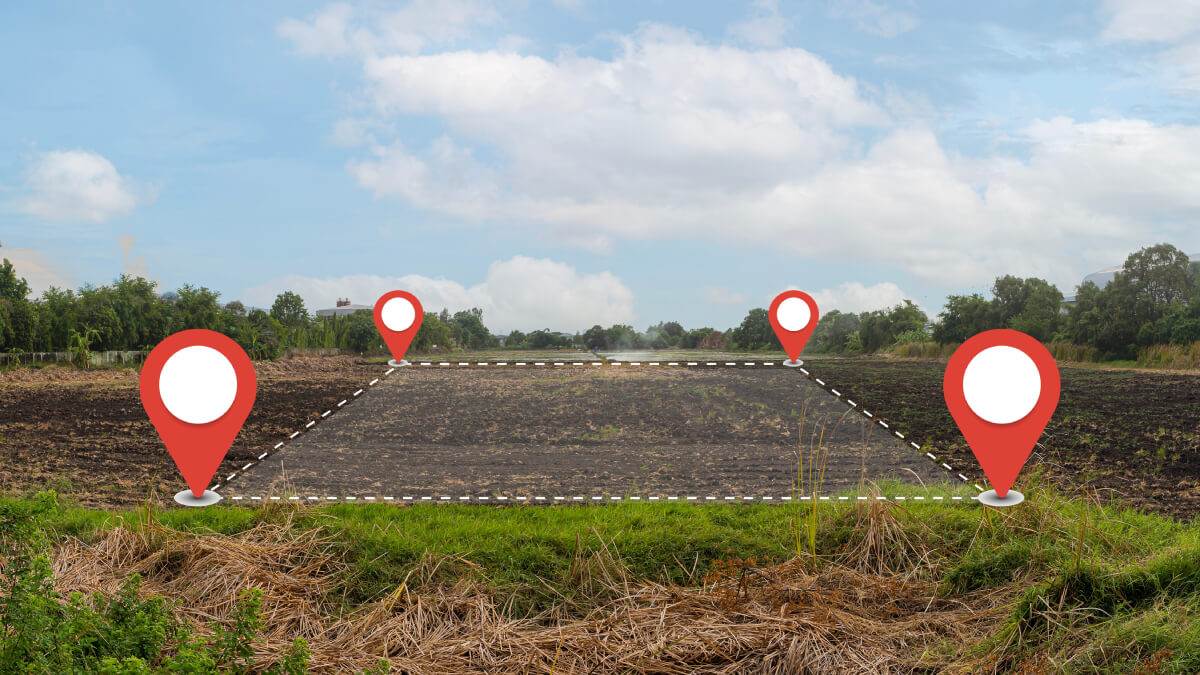
What Should You Factor Into A Self-Build Budget?
Once you’ve decided that building your own home is realistic, you can start developing a more accurate construction budget. These are a few of the considerations you’ll need to include in your budget:
- Demolition: The cost of knocking down existing structures to make way for your project. This will likely increase if there’s contamination or difficult areas to access on your plot.
- Survey Fees: This might involve soil reports, complex ecological assessments such as time-sensitive bat surveys and reports, and proposals for mitigating the replacement of protected trees.
- Design And Planning: You’ll likely need to recruit the services of architects, designers, and engineers to high-quality plans for your house. This also includes planning application fees.
- Construction Costs: The total cost of materials, labour and site preparation (clearing, excavation, grading).
- Utilities And Infrastructure: Installation costs for HVAC systems and water, gas, electricity, and sewer connections. This will also involve the cost of waste disposal and drainage solutions.
- Interior Finishing: Total cost of flooring, painting and decorating, alongside electrical installations and kitchen and bathroom fixtures.
- Permits And Inspections: Building permits, safety inspections and environmental assessments (if required) will all add to the total cost.
- Legal Fees: Paying for the services of a solicitor or legal advisor to help with contracts and compliance can save money in the long run.
- Financing Costs: Include loan arrangement fees, interest on construction loans and appraisal fees in your budget.
- Contingency Fund: It’s always worth including a contingency fund of around 10-20% of the total budget for unexpected expenses or changes.
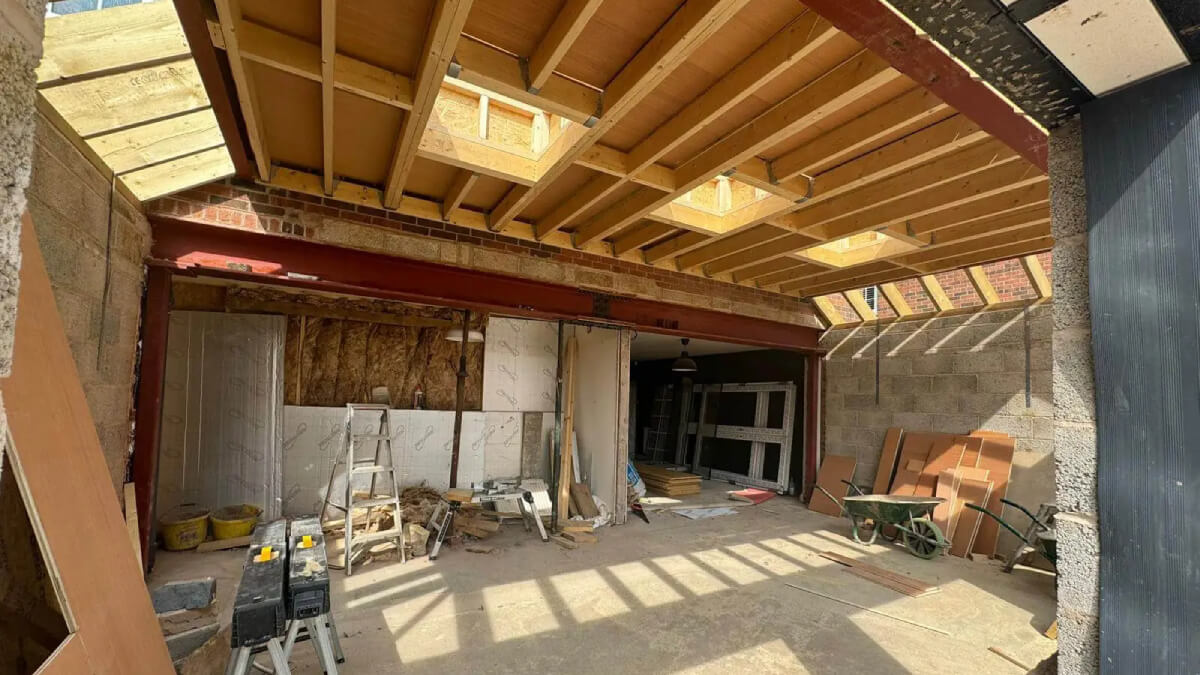
How Does Project Management Impact Build Costs?
While investing in a project manager might seem counterintuitive at first, it’s one of the most effective ways to keep your project moving in the right direction and avoid costly delays. A project manager is someone who coordinates the construction, and they can take on many different forms.
General Builder
Many people who take on a self-build project employ a general builder to run things on their behalf. Typically, they’ll charge around 20% of the build costs for profit and overheads, and this will be agreed upon before construction begins. An experienced, reputable builder will use their expertise to take time and stress off your shoulders. Additionally, they’ll have a long list of contacts and pre-agreed discounts from major suppliers to benefit your project.
Managing The Project Yourself
If you choose to self-manage the project and do so with minimal issues throughout, you could reduce your total budget by up to 20%. The more involved you are in the project, the more money you’ll save, but it will require a significant time investment.
Professional Project Management
For large or complex projects, professional project managers, like Bhangals Construction Consultants, may be worth investing in. This will give you the reassurance that an expert is overseeing your project. Typically, they’ll charge a monthly fee, which could end up being around 6% of your total build cost.
Turnkey Design And Build Package
A turnkey design and build route is the most costly project management method because you give full responsibility for your house’s design, construction and finishing to one company. If you’re looking to minimise the stress involved with building your own house, this is the best way to do so.
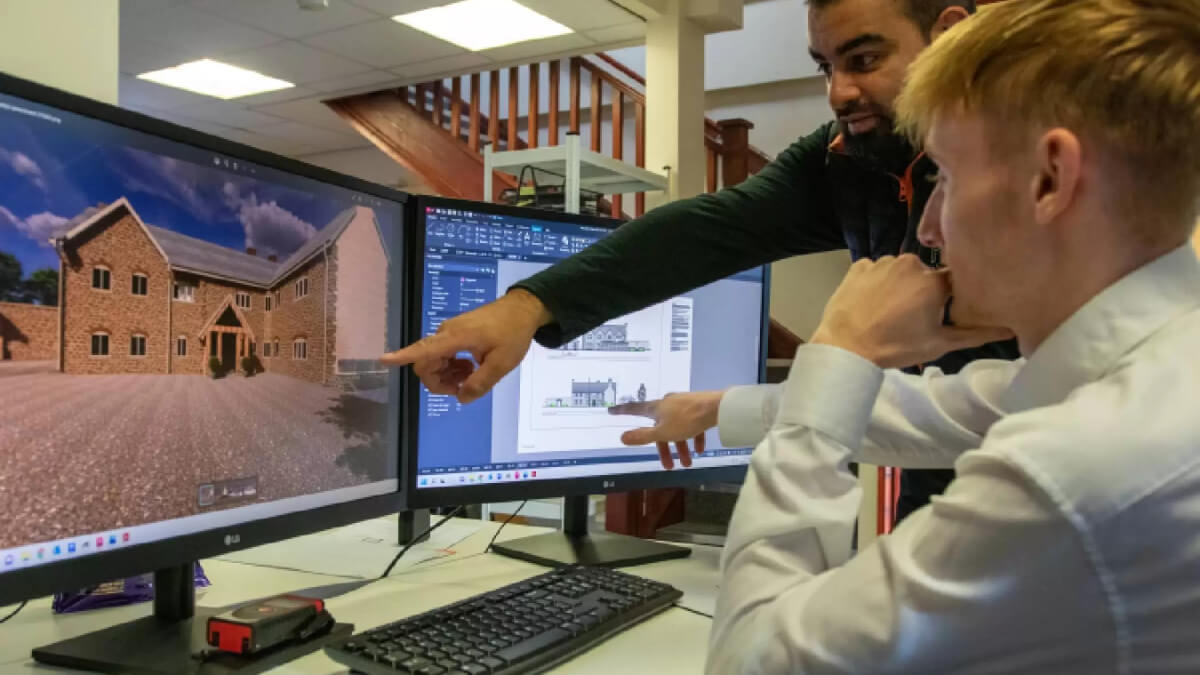
How Does An Architect Impact Build Costs?
Similarly to recruiting a project manager, investing in an architect often helps you save money on your project in the long run. They’ll use their expertise to create optimised designs and maximise space utilisation in your home, helping reduce foundation and construction costs. Additionally, they can recommend cost-effective, sustainable materials that will help you save money through energy efficiency long after construction is complete.
Aside from design ideas, architects can help you avoid costly hold-ups in construction by supporting with planning applications, building regulation compliance, and site surveys. If you’re looking for architects in Northampton to support your self-build project, don’t hesitate to get in touch with our experienced team of architectural technicians at Amico.
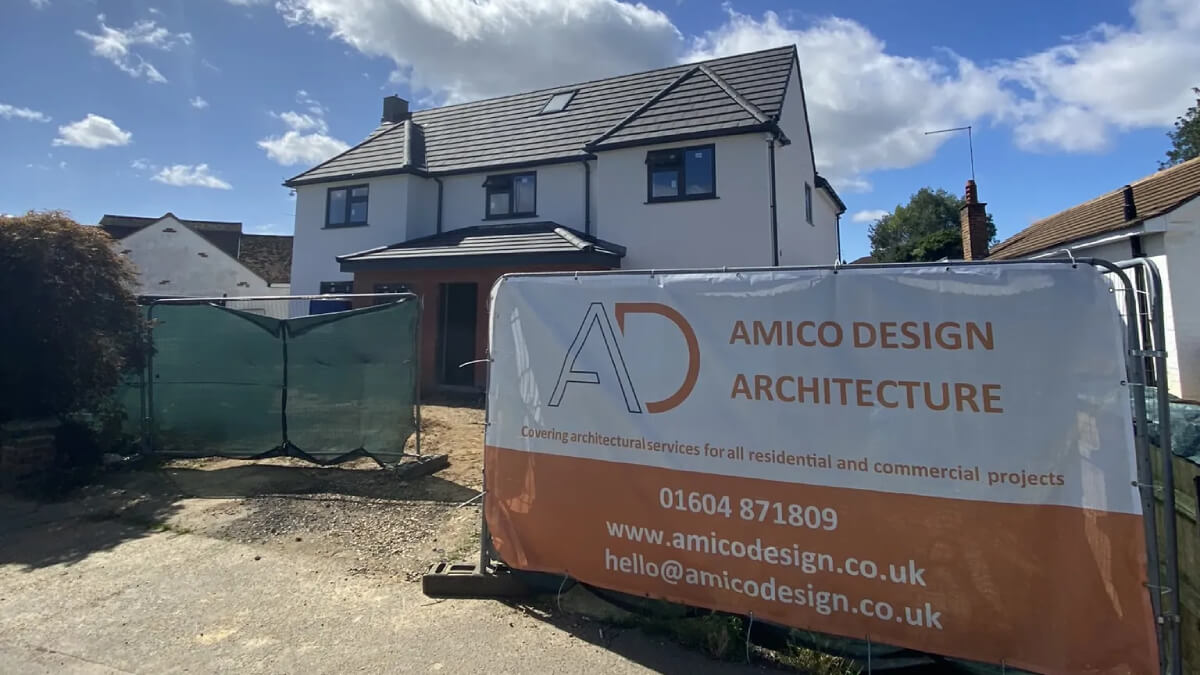
Who Can Help Me Develop A Budget?
Developing a conclusive and accurate budget for your self-build house is complicated and almost always requires specialist support. Here are a few of the ways you can get help in developing a detailed price breakdown:
Estimating Services
Using a specialist estimating service, like My Build Estimate, is one of the quickest and easiest ways to plan your budget. All you need to do is upload your plans, pay the price quoted, and you’ll promptly get an estimate delivered to your inbox. Services like this are extremely useful when comparing quotes from different suppliers and contractors.
Builder’ Merchants
Alternatively, you can get quotes directly from builders’ merchants based on your drawings. However, they will need to be approved building regulations drawings, and the merchant will need to be confident that you intend to buy materials from them.
Package Home Companies
Package home specialists are useful when you’re trying to calculate the early-stage costs, especially if the house is based on one of their designs. They’ll also work closely with you to create a design that delivers your self-build goals.
Quantity Surveyors
Usually, construction estimates are provided by a quantity surveyor. They act as the financial guardian for your project and help ensure it meets the necessary legal and quality standards. For many self-build homes, quantity surveyors might not be cost-effective unless you’re planning a high-spec house.
Builders Quotes
A good builder will also provide a comprehensive estimate based on the level of detail in the specifications. It is common for a self-build specification to span numerous pages.

Is Building A House Worth It?
Building a house is a huge commitment to take on, so it’s essential to fully assess the finances involved before you begin construction. That said, there are few more rewarding feelings than opening the door to your dream home after months or years of hard work. If you’re ready to move forward with your self-build and are looking for architects in Milton Keynes to help, get in touch with our architectural technicians at Amico.
Got any more questions?
Contact us and we’ll be in touch as soon as possible.
